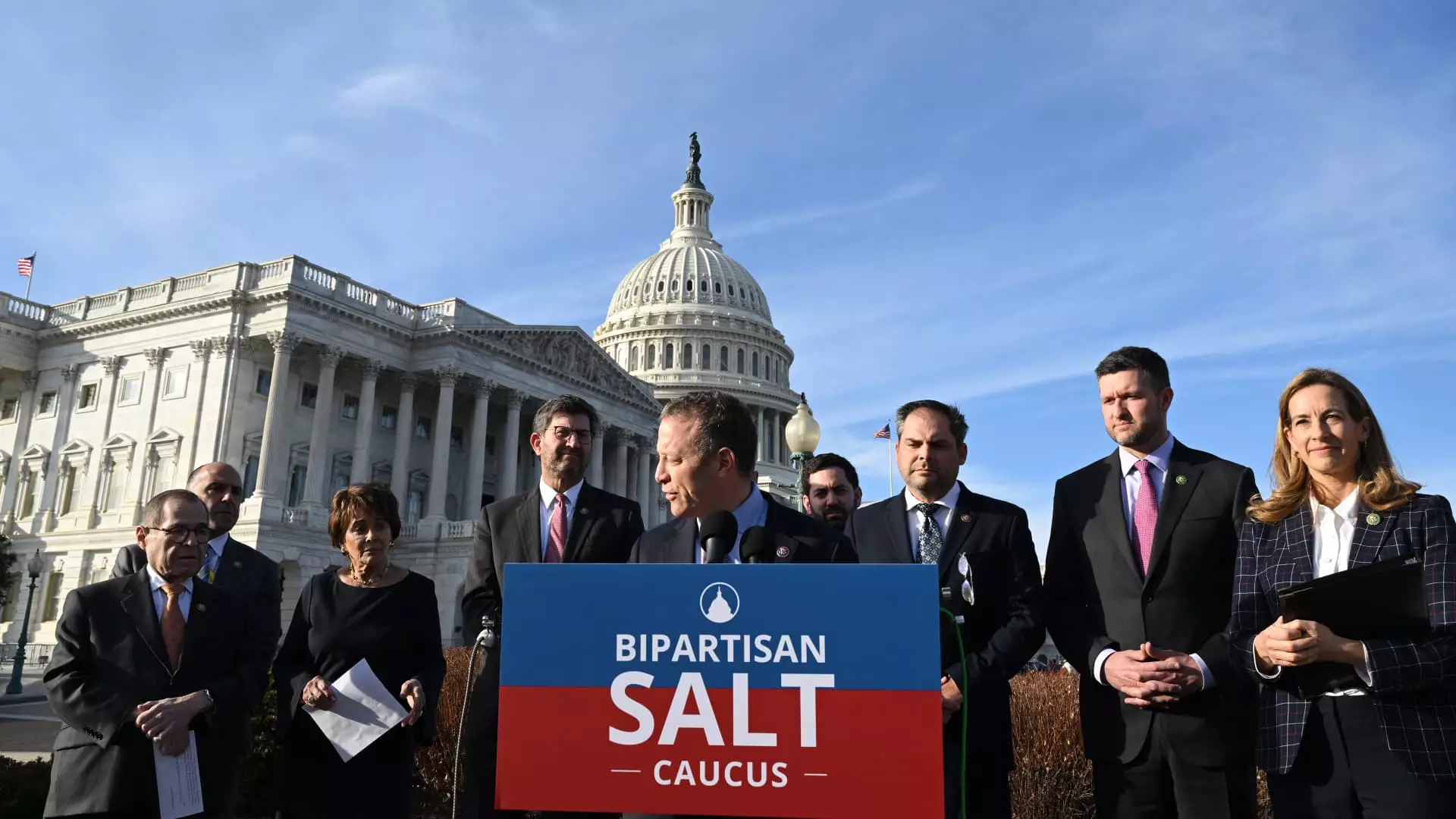In the ongoing swirl of political debate surrounding President Donald Trump’s agenda, one of the more contentious issues revolves around the federal deduction limit on state and local taxes (SALT), established by the Tax Cuts and Jobs Act (TCJA) of 2017. This $10,000 cap continues to spark outrage and calls for reform, primarily benefiting individuals in higher tax states like California, New York, and New Jersey. While some lawmakers argue fervently for its increase, it is essential to scrutinize who truly stands to gain from these proposed changes and how they might derail broader efforts for equitable tax reform.
What the SALT cap represents is an entrenched inequity in our tax system. The original intent behind the cap may have been to balance the federal budget and ensure that tax revenue flows more equitably. But in reality, it has turned into a mechanism that disproportionately penalizes the middle class and the working poor, thereby widening the wealth gap. The average American, often living in states with lower tax burdens, is already bearing the brunt of fiscal policies favoring the affluent, and elevating the SALT deduction limit would multiply this problem.
Congressional Priorities: A Tug-of-War for the Well-Connected
Pressure is mounting within Congress as several lawmakers from high-tax states, eager to advance the interests of their wealthy constituents, demand a raised SALT cap. The notion of expanding the limit or even completely eliminating it has filled airwaves and news cycles, yet is paradoxically supported by a legislature that has failed to prioritize the needs of everyday Americans. The likelihood of effective change hinges on both fiscal responsibility and competing demands, typically favoring those with the loudest voices in the room.
With a precarious Republican majority, those advocating for reform can create a significant impact in negotiations. However, one must question whether the political capital spent on this issue would be better allocated to projects, programs, or perhaps larger tax cuts that benefit the majority rather than a select few. The standard deduction has continued to rise—$15,000 for single filers and $30,000 for married filers in 2025—which signifies that the majority of taxpayers are already benefiting from a system designed to reduce the tax burden on most.
Additionally, while raising the SALT cap could theoretically ease financial strains for some, especially upper-middle-income families dwelling in affluent districts, the structural issues within our tax code that leave the lower and middle classes vulnerable remain unaddressed. A move to benefit higher earners creates a false narrative of relief, neglecting those who are genuinely in need.
Tax Policy: Who Reaps the Rewards?
The implications of raising the SALT cap paint a clear picture of who gains in this proposed scenario. Recent analyses suggest that nearly three-quarters of the benefits of a SALT repeal are expected to flow to households earning $430,000 or more annually. Such stark numbers reveal a systemic bias favoring wealth accumulation and excessive taxation dismantling for those closest to affluence while disregarding vulnerable populations.
Additionally, it unveils a broader moral quandary that transcends individual financial impact. Tax reform should endeavor to uplift all citizens, ensuring that those who contribute to economic growth through hard work are not punished while the privileged few flourish. Any meaningful reform must tackle these disparities, promote social equity, and challenge the political status quo that routinely places the health of the wealthy over the needs of communities struggling to survive.
When it comes to tax policy, America stands at a crucial crossroad. The choice between a tax reform that genuinely serves the populace and one that fortifies the interests of the affluent is essential to consider. A holistic approach that examines not just the headlines but also the pervasive realities for all citizens will determine the future path we traverse as a nation. The SALT cap debate encapsulates a much larger conversation regarding fairness, equity, and what kind of society we genuinely wish to build together.

